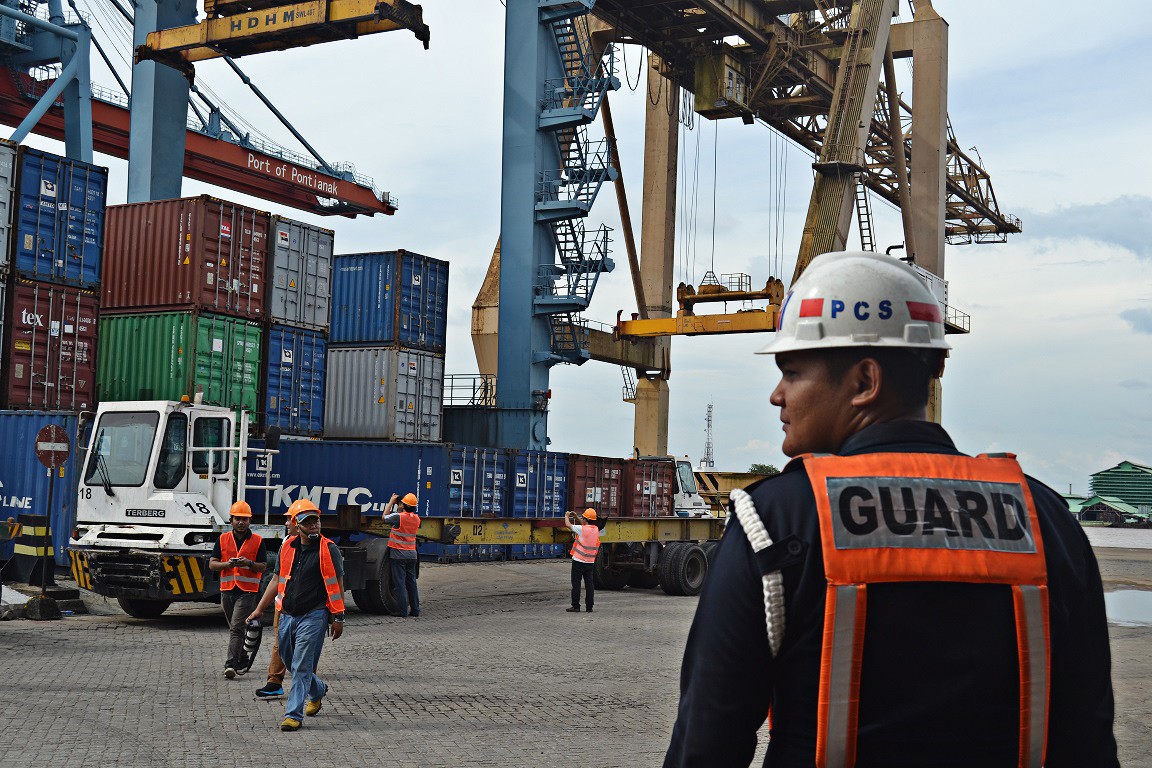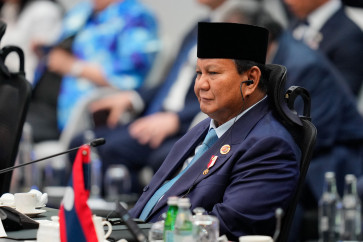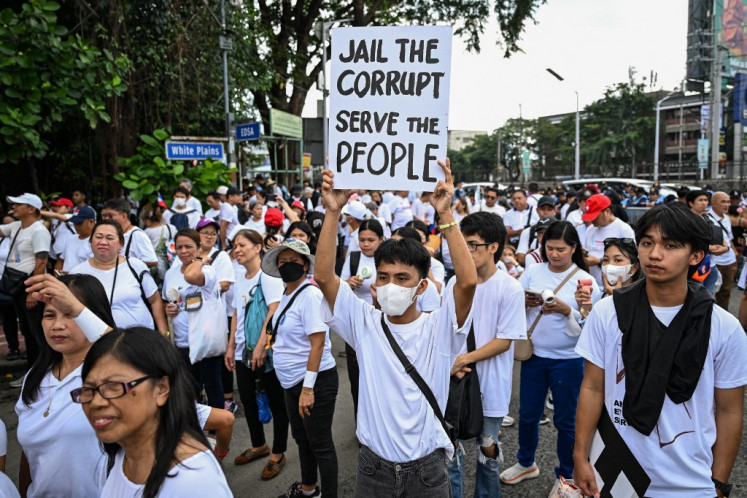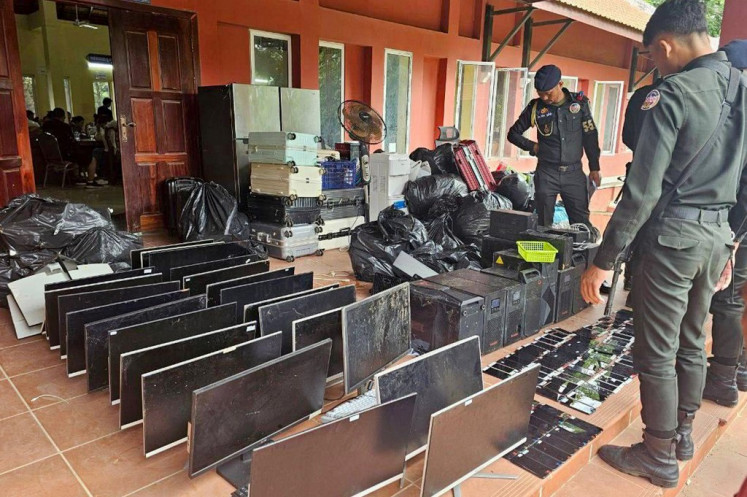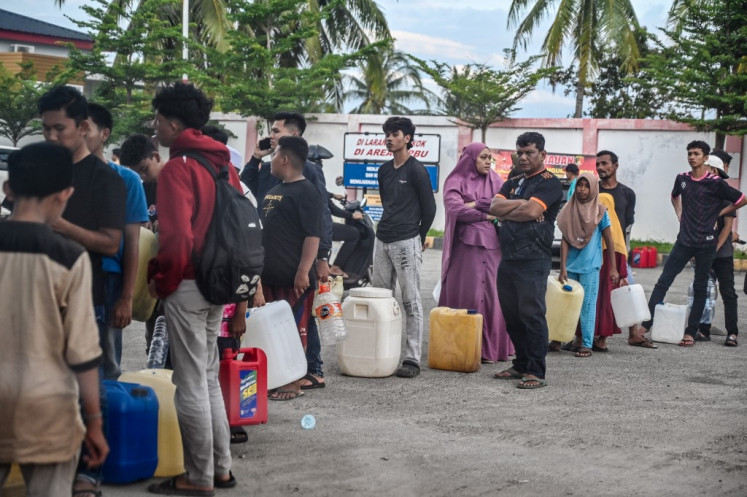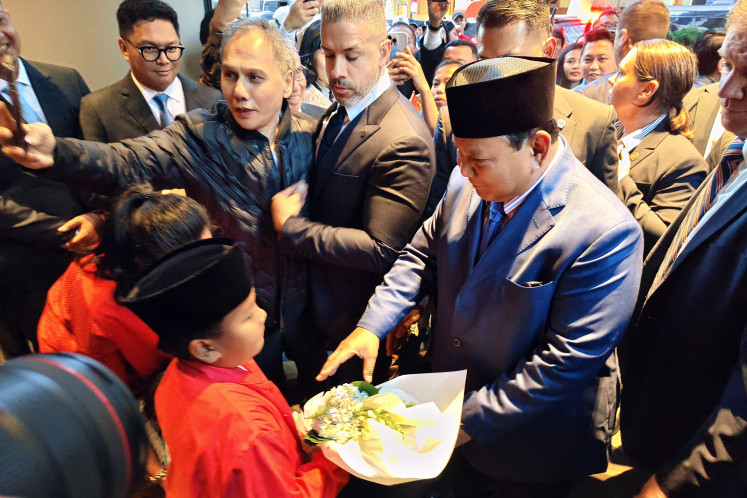Popular Reads
Top Results
Can't find what you're looking for?
View all search resultsPopular Reads
Top Results
Can't find what you're looking for?
View all search resultsTime for maritime security issues at Security Council
As the largest archipelagic country, Indonesia holds strong credentials to actively ensure the safety of shipping lanes.
Change text size
Gift Premium Articles
to Anyone
A
t the United Nations (UN) plenary meeting on June 8, Indonesia managed to gain 144 votes from 190 countries, securing a non-permanent seat on the Security Council. This will be the fourth term for Indonesia representing the Asia Pacific group at UN’s most powerful body after its terms of 1973-1974, 1995-1996 and 2007-2008.
Shortly after the election, Foreign Minister Retno LP Marsudi reiterated Indonesia’s commitment to world peace and to represent the interests of 193 UN member countries to the best of its abilities. As a non-permanent member of the Council four main priorities for Indonesia will be: (1) advancing peacekeeping and peacebuilding including the stronger role of women in peacemaking; (2) promoting engagement between the UNSC and regional organizations in conflict prevention; (3) forging global partnership in achieving the 2030 Sustainable Development Goals; and (4) developing a global comprehensive approach to address the root causes of terrorism and radicalism. During its tenure starting next Jan. 1 Indonesia should also add the issue of addressing maritime security.
Maritime security has become among the most salient issues in the 21st century as the ocean has become a vital component of global trade and economic growth. Roughly half the world’s container ships and two-thirds of the world’s oil shipments pass through the South China Sea from the Malacca Strait and the Indian Ocean. All major economies have stakes in ensuring the safe passage of shipping through the South China Sea; any interruption would tremendously impact the global economy. Constant attention and management are thus needed to secure peace and stability in the oceans.
As the largest archipelagic country, Indonesia holds strong credentials to actively ensure the safety of shipping lanes, especially since our archipelago also hosts some of the most strategic choke points for global trade incluidng the Malacca Strait, the Sunda Strait, and the Lombok Strait. Advocating maritime security issues at the Council would further help Indonesia’s aspiration to become a global maritime axis, as campaigned by President Joko “Jokowi” Widodo.
A seat on the UNSC, albeit a non permanent two-year period, gives Indonesia an important platform to raise concerns over the growing maritime non-traditional security threats, such as piracy and armed robbery, illegal fishing, people smuggling and terrorism. Piracy has been an increasing problem, particularly in Southeast Asia. Despite an overall decline in piracy attacks from 303 reported in 2015 to 221 in 2016, Southeast Asia has replaced the Somali Coast as the area most affected by piracy, with 68 incidents in the South China Sea and 16 cases involving boarding, hijacking and kidnapping in the area of the Sulu-Celebes Sea in 2016.
Piracy attacks in Southeast Asia are more related to theft of oil, as part of organized crime linked to the black market. Thus Indonesia can foster cooperation that includes naval patrols, joint aerial surveillance and intelligence sharing beyond Indonesia’s current cooperation with Malaysia and the Philippines.
Indonesia can also make full use of the opportunity at the UNSC to advance the long-term “green water” ambitions of its Navy. This refers to part of Indonesia’s plan to modernize its military under the 2024 Minimum Essential Force blueprint adopted in 2005. The country’s green-water-navy aspires for effective policing of exclusive economic zones and to have limited regional and occasionally even international, force projection capabilities.
Thus, with awareness about the increasingly volatile maritime domain, Indonesia should not only increase its peacekeepers’ personnel up to 4,000 by 2019, but should also ramp up naval capabilities through joint capacity building program and training of trainers with foreign vendors, so the Navy could perform low to high-intensity operations.
Being a non-permanent member of the UNSC, Indonesia also has the opportunity to table its Indo-Pacific Cooperation concept and seize the initiative to propose the “rules of engagement” in two strategic seas, the Indian and the Pacific Ocean. Indonesia can significantly follow up on the Jakarta Concord put forward under Indonesia’s chairmanship of the Indian Ocean Rim Association from 2015-2017.
As the UNSC representative of the Asia-Pacific Indonesia can also spearhead an informal consultation mechanism for security issues in the region among Japan, China, India and Australia.
And as an emerging maritime power, Indonesia should continue to play a constructive role in addressing global maritime problems through advocating enforcement of the international law of the sea, maritime diplomacy, naval improvement and regional maritime cooperation. Indonesia’s international activism in the maritime domain should be seen as a strategic repositioning in giving a much bigger impact during its short- tenure on the Security Council, as well as to strengthen Indonesia’s identity as a maritime nation and an archipelagic state.
***
The writer, a diplomat, is studying for his PhD on maritime diplomacy at the National Graduate Institute for Policy Studies in Tokyo, Japan (email pandu.utama.manggala@gmail.com; or Instagram account @pandu_manggala and Linkedin: https://www.linkedin.com/in/pandumanggala/)

